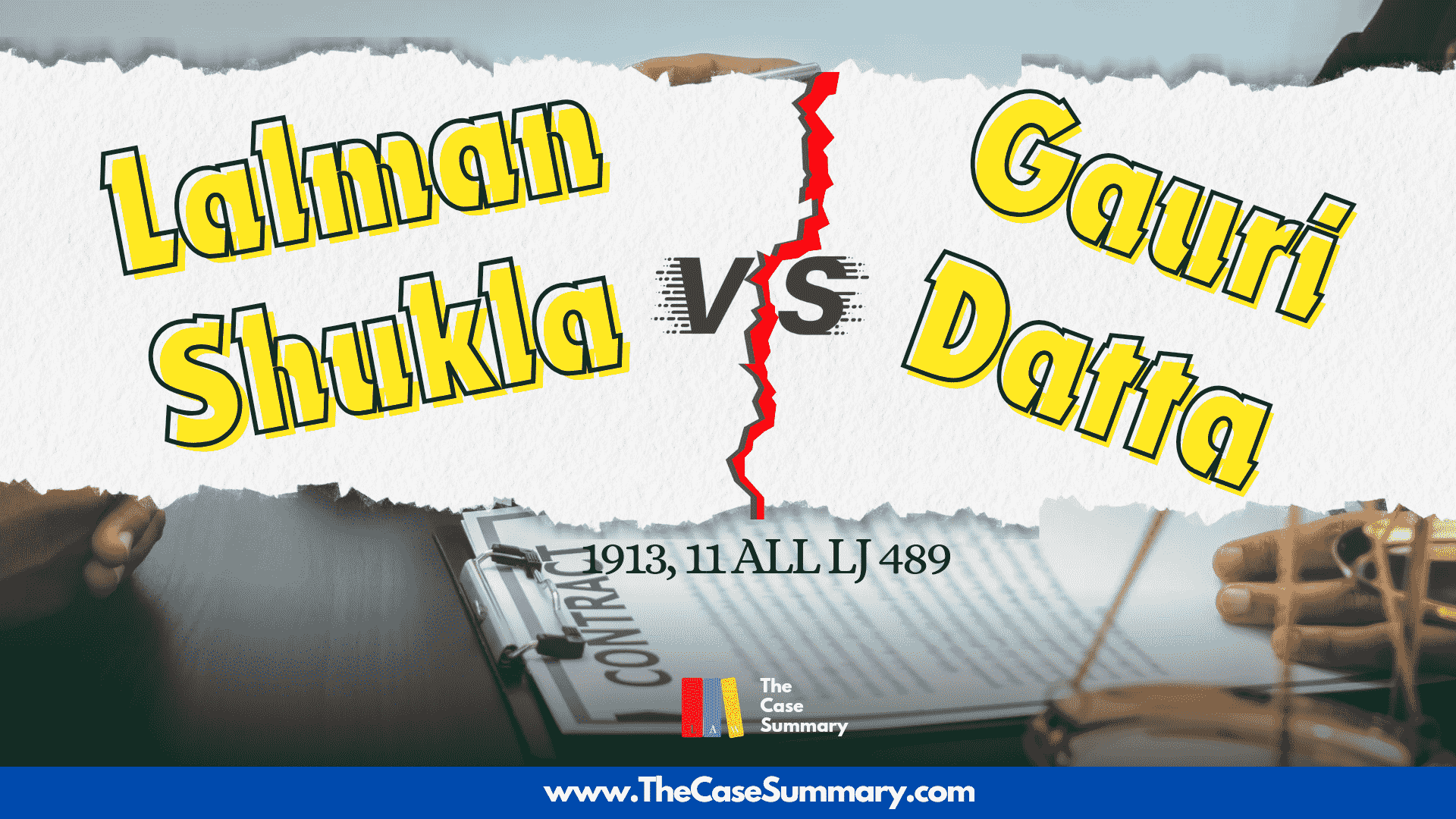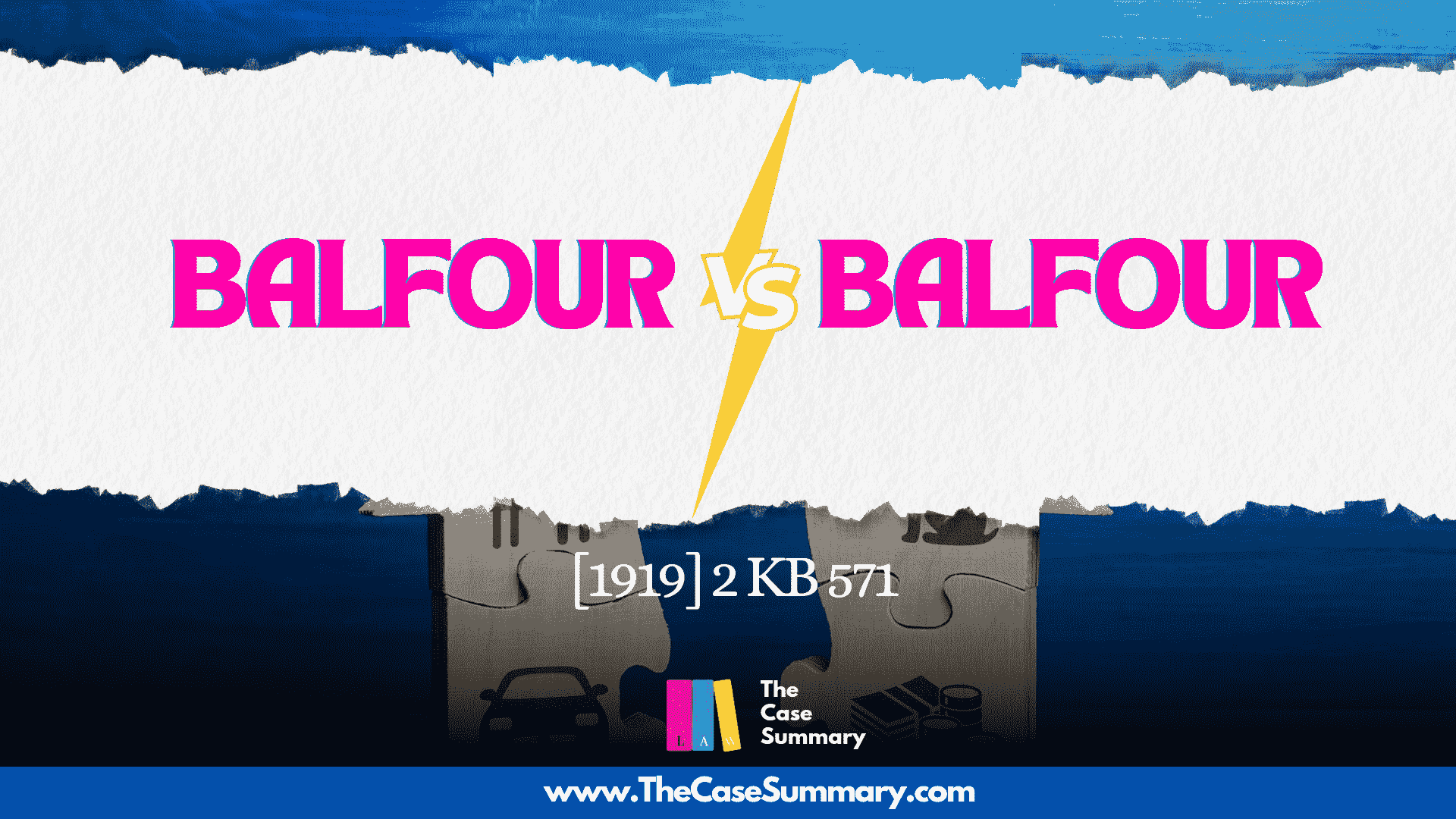Lalman Shukla vs Gauri Datta
Case Reference : 1913, 11 All LJ 489
Jurisdiction : India
Plaintiff : Lalman Shukla
Defendant : Gauri Datta
Facts :
The Plaintiff (Lalman Shukla) was the servant of the defendant (Gauri Datta). One day, the nephew of the defendant (Gauri Datta) ran away from home and could not be located for some time. The defendant sent his servant (Lalman Shukla) to various places to search for the boy. While the plaintiff was out looking, the defendant issued a public notice promising a reward of Rs. 501 to anyone who found the boy. The plaintiff was totally unaware about this reward announcement. After searching for a long time he eventually found the boy and returned home with him. When they returned home, he came to know about the reward announcement. Then he claimed the reward, valued Rs. 501 for finding the boy. But the defendant denied to give him the amount by mentioning that there was no contract between them. Lalman Shukla filed a lawsuit against Gauri Datta for breaching the contract at Allahabad High Court.
Decision :
The Allahabad High Court rejected Lalman Shukla’s claim for a reward offered by Gauri Datta. The court stated that, as per Section 4 of the Contract Act, 1872, the communication of both the offer and its acceptance is essential for the formation of a valid contract. The presence of both knowledge and consent is required to transform a proposal into a binding agreement. Lalman Shukla didn’t know about the reward when he had searched for the missing boy, so he couldn’t accept the offer. Since he was just doing his job as a servant, not acting because of the reward, the court decided there was no contract and dismissed his case.
Relevant Law :
- The Contract Act, 1872
- Section : 4
Author :
1. Md. Atikur Rahman
Note : The Case Summary is a platform by the law students, for the law students. We aim to summarize the facts and decisions of various important cases in both Bangla and English with utmost caution. However, this platform is in no way a replacement for going through the complete judgements by the law students and we discourage any learner from relying on case summaries alone. Thank you



